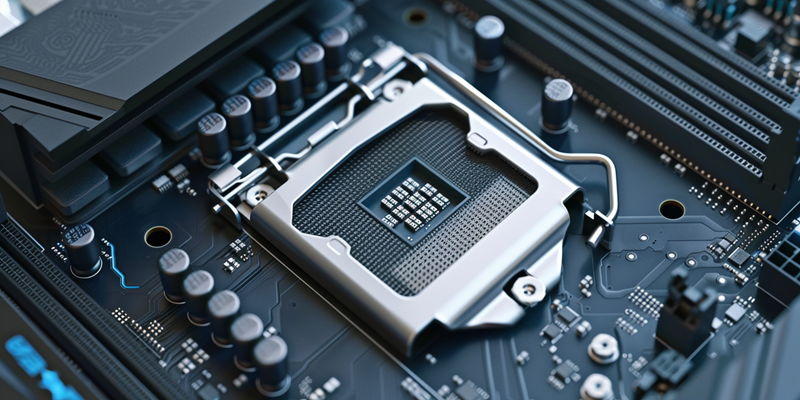In the high-stakes world of computer processing, Intel is gearing up for a major move. It’s a game of anticipation and strategy, with the tech giant holding its cards close at the recent Computex event. Instead of laying down its hand with the much-awaited Arrow Lake desktop CPUs, Intel signaled its play will come later at the September Innovation event. However, the presence of Z890 motherboards, ready for the forthcoming Arrow Lake processors, was a clear show of confidence from vendors, priming the market for an autumn release.
The Arrow Lake architecture promises a formidable pivot in Intel’s design philosophy, with a first-of-its-kind tiled-based desktop CPU emerging from the Intel 20A process. At its core, this new leap forward will feature state-of-the-art RibbonFET transistors and the PowerVia technology, redefining backside power delivery systems. Adapting to this advancement entails shifting to a new LGA 1851 socket, tailor-made for the architectural overhaul.
Under the Hood: A Peek into Performance
Intel’s blueprint for Arrow Lake champions efficiency without compromising vigor. The eye-catching aspect of these processors is their reduced power consumption, with projections suggesting only about 80% of the power draw compared to their Raptor Lake predecessors. This is achieved through slightly restrained clock speeds and the surprising subtraction of Hyper-Threading. As with every generational jump, the CPUs will benefit from the upgraded Lion Cove P-cores and Skymont E-cores that promise notable IPC (Instructions Per Cycle) gains, ensuring stronger performance per watt.
All eyes are on the flagship Core i9-12900K, boasting a brawny 24 cores and 32 threads. But the lineup doesn’t step off the gas there; lower-tier models will also surge onto the market. These trailblazers are not just intent on raw power—support for DDR5 memory and potentially groundbreaking CAMM memory solutions hints at speed enhancements that outpace conventional modules.
Market Watch: A Potential Tectonic Shift
Tech aficionados are brimming with anticipation as Intel gears up to unveil its innovative Arrow Lake processors this fall. These CPUs mark a paradigm shift, emphasizing the coveted trait of efficiency amid a trend toward power-intensive computing. Intel’s upcoming releases are expected to surpass their predecessors, delivering higher performance and cooler operation—a twofold advantage for tech lovers. This pivotal launch promises to alter the CPU competition dynamics significantly, especially as it coincides with AMD’s release of the Ryzen 7000 series. The stage is set for an intense rivalry in the CPU arena that could redefine the sector for the foreseeable future. With high stakes for performance supremacy, the imminent face-off between these tech giants will captivate industry observers and potentially revolutionize the market landscape.

